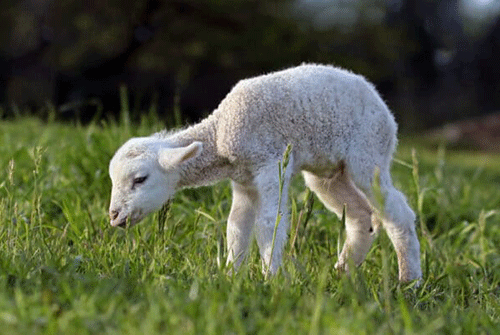Disease can have various causes. Some of these causes are germs, such as bacteria, viruses and fungi. The following is a list of situations that could result in sheep/goats becoming sick:
Dirty surroundings
Keeping sheep/goats in a dirty kraal could result in them eating or drinking food or water contaminated with droppings. These droppings may contain germs that could make the animals sick. Try to clean out kraals where possible. Remove manure regularly.
Poor condition
If your sheep/goats are in poor condition or if you are not feeding them well, they can become sick easily. Supplement sheep/goats’ rations with extra feed during winter and remember that pregnant ewes need more food to produce healthy lambs/kids.
Stress
Stress plays an important role in causing disease. Animals tend to get sick if they are very stressed. Overcrowding, underfeeding, transportation and management procedures such as tail docking, castration, ear tagging and shearing cause stress.
Try to reduce stress by treating the animals in a relaxed manner. Avoid overcrowding. Make sure they have adequate food. If you are transporting them, make sure they have enough water, that they do not become too hot or too cold and also do not load too many sheep/goats on one truck.
Not vaccinating animals
Vaccinating sheep/goats against diseases that occur frequently in your area can help to prevent certain diseases. It is usually more economical to vaccinate your animals than to treat or put down sick animals.
If ewes are not vaccinated before giving birth, they will not be able to pass on protection to their young via their milk. This could result in some lambs/kids becoming very sick a few days or weeks after being born. It is also very important to vaccinate ewes against tetanus because then the lambs/kids will also be protected against this disease.
Obtain veterinary help to decide what vaccines to use and when to use them.
Lambs/kids not suckling enough
In order for the lambs/kids to receive enough protection, they should be allowed to suckle as much as possible from their mothers, especially in the first few days. Allow the ewes to stay with their lambs/kids for the first few days after giving birth. If you have extensive grazing, try to keep the lambs/kids with their mothers at night so that they may be allowed to suckle.
Not checking new animals
Buying sheep/goats to replace or increase your flock without checking them carefully could bring all kinds of diseases onto your farm. Make sure you buy from a dealer you can trust and check the sheep/goat properly to ensure that it has no diseases. If you are unsure about what to look for, ask your local animal health technician or veterinarian for help.
Ear tagging, tail docking and castration
These practices are used by most small-stock farmers in the management scheme for their lambs/kids. Care must be taken during these operations to prevent lambs/kids from becoming sick. They may even get tetanus, which is a serious disease in lambs/kids and could result in death.
Therefore, keep the wound areas clean and check them regularly. Use a wound/antiseptic powder if necessary.
Vaccinate ewes against tetanus. Always boil your instruments, such as knives, for at least 15 minutes before you use them on your animals. Boil the instruments again if they become dirty while you are using them and before you continue to use them.
Worms
When sheep have a high number of worms, they are usually not productive and tend to lose weight. This can also put them at risk of getting diseases. If you notice signs of worm infestation such as weight loss, diarrhoea or paleness of the eyes and gums, then you should deworm your animals. Make sure you use the correct remedy. If you see no improvement after deworming, consult your local animal health technician or veterinarian.
Ticks and mites
Ticks and mites can cause many problems in the case of sheep/goats. Ticks can spread diseases such as heartwater. Certain ticks can cause paralysis and they also damage the wool and skin. Mites cause mange. This disease leads to high production losses for farmers through loss of wool and damage to the skin. Treat your sheep/goats for ticks and mites. Try to follow a programme for strategic dipping.


